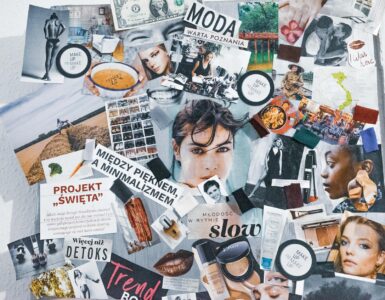History isn’t just dusty old textbooks and stuffy museums. It’s a gloriously messy, hilarious, and often bizarre chain of events that shaped the cultures we know and love (or maybe tolerate… let’s be honest, some cultural quirks are… unique). Dig a little deeper, and you’ll uncover surprising connections between seemingly unrelated historical events and their lingering effects on our traditions, customs, and even our language. Prepare for a whirlwind tour through time, where potatoes trigger wars, a fishy sauce dictates Roman power, and cats become symbols of good luck (mostly).
The Great Potato Famine and the Rise of Irish Dance
Most people link the Irish Potato Famine (1845-1849) to mass starvation and emigration. But the devastation also indirectly contributed to the global popularity of Irish step dancing. With widespread poverty and a lack of work, many Irish people turned to performing arts as a means of survival. Step dancing, already a vibrant part of Irish culture, saw a surge in popularity, both in Ireland and amongst the diaspora who carried it to new lands. So, that energetic jig you see at a St. Patrick’s Day parade? It’s got a pretty somber history intertwined with it. History's Hidden Handshakes: Unexpected Cultural Connections You Won't Believe
Garum: The Roman Empire’s Secret Weapon (and Stinky Sauce)
Imagine a world ruled by a delicious (and incredibly pungent) fermented fish sauce. That was the Roman Empire, at least partially. Garum, a condiment made from fermented fish guts, was the umami bomb of its day. It was incredibly popular, fueling the Roman economy, and even influencing politics. Trade routes were built around its production, and fortunes were made and lost on its quality. While the exact recipe is lost to time, the sheer importance of this fermented fish goo in Roman society is a testament to how food can unexpectedly shape history and culture.
The Black Death and the Rise of the Renaissance
The Black Death was, without a doubt, one of history’s most devastating events. Millions died, resulting in societal upheaval, economic collapse, and a significant labor shortage. Strangely, this catastrophe inadvertently paved the way for the cultural explosion of the Renaissance. The labor shortage gave rise to a demand for skilled workers, leading to increased wages and social mobility. This newfound affluence and social change fostered creativity and innovation across the arts and sciences, profoundly influencing European culture for centuries to come. It’s a grim example of how destruction can, by sheer accident, make way for immense cultural rebirth.
The Cat’s Unexpected Ascension from Pest to Pal
Cats today evoke images of adorable fluffballs and internet memes. But their journey to becoming beloved pets is a fascinating twist on their original role as pest controllers. Initially, cats weren’t universally loved; many cultures viewed them with suspicion or even fear. However, starting around the 17th century, their effectiveness in controlling rat infestations (and thus diseases) propelled them to a more favorable position in many societies. The change in attitude towards cats is a prime example of how practical usefulness can completely revamp a species’ cultural standing.
Coffee, Kings, and the Birth of Coffee Houses
Coffee, that daily ritual that fuels millions, has a fascinating history. Its introduction into Europe wasn’t initially smooth. Some initially viewed it with suspicion, viewing it as a “devilish” concoction. However, coffeehouses rapidly became essential social hubs, offering a space for intellectual discourse and social interactions. They played a significant role in shaping public opinion, fostering the Enlightenment, and paving the way for modern cafes. The humble coffee bean sparked a societal shift.
The Silk Road: More Than Just Silk and Spices
The Silk Road, famously known for its trade in silk and spices, is often overlooked for its deeper cultural impacts. It served as a conduit for the exchange of ideas, religions, and artistic styles between East and West for centuries. Buddhism spread along these routes, influencing art, philosophy, and even political structures across Asia. The exchange of artistic techniques and cultural practices resulted in a rich blend of influences, demonstrating the power of trade in shaping diverse cultural landscapes.
The Printing Press and the Dissemination of Ideas
Gutenberg’s printing press isn’t just a technological advancement; it’s a cultural game-changer. Mass production of books led to wider literacy rates, the spread of new ideas, and ultimately, the reformation. Consider the incredible impact of pamphlets and newspapers—suddenly, ideas and information circulated widely and quickly, directly influencing political and social revolutions. The spread of literacy and information dramatically altered power dynamics and cultural shifts.
Das unerwartete Erbe der Kreuzzüge
The Crusades, often remembered for religious conflict and violence, inadvertently had profound consequences for European culture. Contact with the East introduced new goods, technologies, and cultural practices to Europe. Architectural styles were influenced, new foods were adopted, and intellectual ideas were exchanged. It’s a complex and messy legacy where religious conflict intersected with cultural exchange, resulting in unexpected shifts in European life.
Schlussfolgerung
History’s tapestry is woven with threads of both grand narratives and quirky details. These unforeseen connections between historical events and cultural practices remind us that history is rarely straightforward. It’s a constant interplay of grand designs and unintended consequences, a complex and often surprising story that continues to shape our world.

























Kommentar hinzufügen